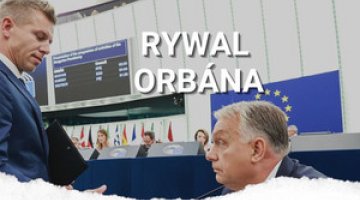Orban in Moscow: it’s not only about energy
On 17th February Hungary’s Prime Minister Viktor Orban visited Moscow. President Vladimir Putin confirmed Russia’s commitment to the development of the Hungarian nuclear power plant in Paks. Both parties also confirmed the deal agreed last year to extend the contract for gas supplies to Hungary until 2019. The press conference with the participation of Orban and Putin was dominated by international issues. Orban dismissed the possibility of an ‘automatic extension’ of the EU sanctions against Russia in June and called for a discussion about it within the EU. He also called for the normalisation of relations between the EU and Russia and underlined that co-operation with Moscow is an indispensable condition in order to maintain the competitiveness of the EU’s economy. He also praised Russia for ‘contributing to solving the conflict in Syria and limiting the migration to Europe’. Putin expressed his appreciation for Hungary’s efforts to resume dialogue between the EU and Russia and to ‘protect the European identity’ in the face of the migration crisis. Following the visit, the Hungarian government, which had been until then rather critical of the Nord Stream 2 gas pipeline, declared that ‘the project might be of importance to Europe’.
Commentary
- Relations between Hungary and Russia have moved beyond a pragmatic energy co-operation and annual meetings between Orban and Putin are intended to strengthen political ties. Furthermore, in the name of implementing economic projects, Hungary is ready to back Russian interests and demands in the international forum. Despite Russian airstrikes targeting the Syrian anti-Assad opposition and civilians, Hungarian diplomacy has commended the Kremlin’s operations and is calling for co-operation between NATO and Russia in resolving the conflict in Syria. Budapest also supports Russia’s project to establish a free trade zone extending ‘from Lisbon to Vladivostok’. Hungary is one of a group of EU countries which remain sceptical of the sanctions imposed on Russia. However, when voting for or against an extension of the sanctions, Hungary is likely to take a position in line with Germany’s stance. Hungary’s overt support for Moscow’s actions makes it more difficult for the EU and NATO to maintain a coherent position towards Russia and complicates Hungary’s already tense relations with the US. It also poses a challenge for the consolidation of the Visegrad Group and wider co-operation in Central Europe.
- As for economic issues, Orban’s visit to Moscow was intended to discuss the flagship project of the extension of the nuclear power plant in Paks and a series of smaller-scale joint economic projects. The plan for Rosatom to build two nuclear reactors at Paks has been running into ever greater problems. It has become the subject of an EU procedure to examine whether it involves illegal state assistance or a violation of EU regulations regarding public procurement. Furthermore, there are growing doubts in Hungary as to whether Vnesheconombank will be able to provide a loan of 10 billion euros for this investment (according to an agreement signed in 2014) due to the worsening economic crisis in Russia. President Putin has been attempting to dispel these doubts. Despite the problems with the extension of the Paks power plant, Orban sees the project as the ‘investment of the century’ and a driving force behind Hungary’s economy. Budapest is not daunted by the setbacks in the implementation of joint projects with Russia, for example the failure of the construction of the South Stream gas pipeline which was supposed to cut across Hungary or the intensification of trade and investment co-operation which Hungary has promoted and which has seen a dramatic decrease over the previous two years.





